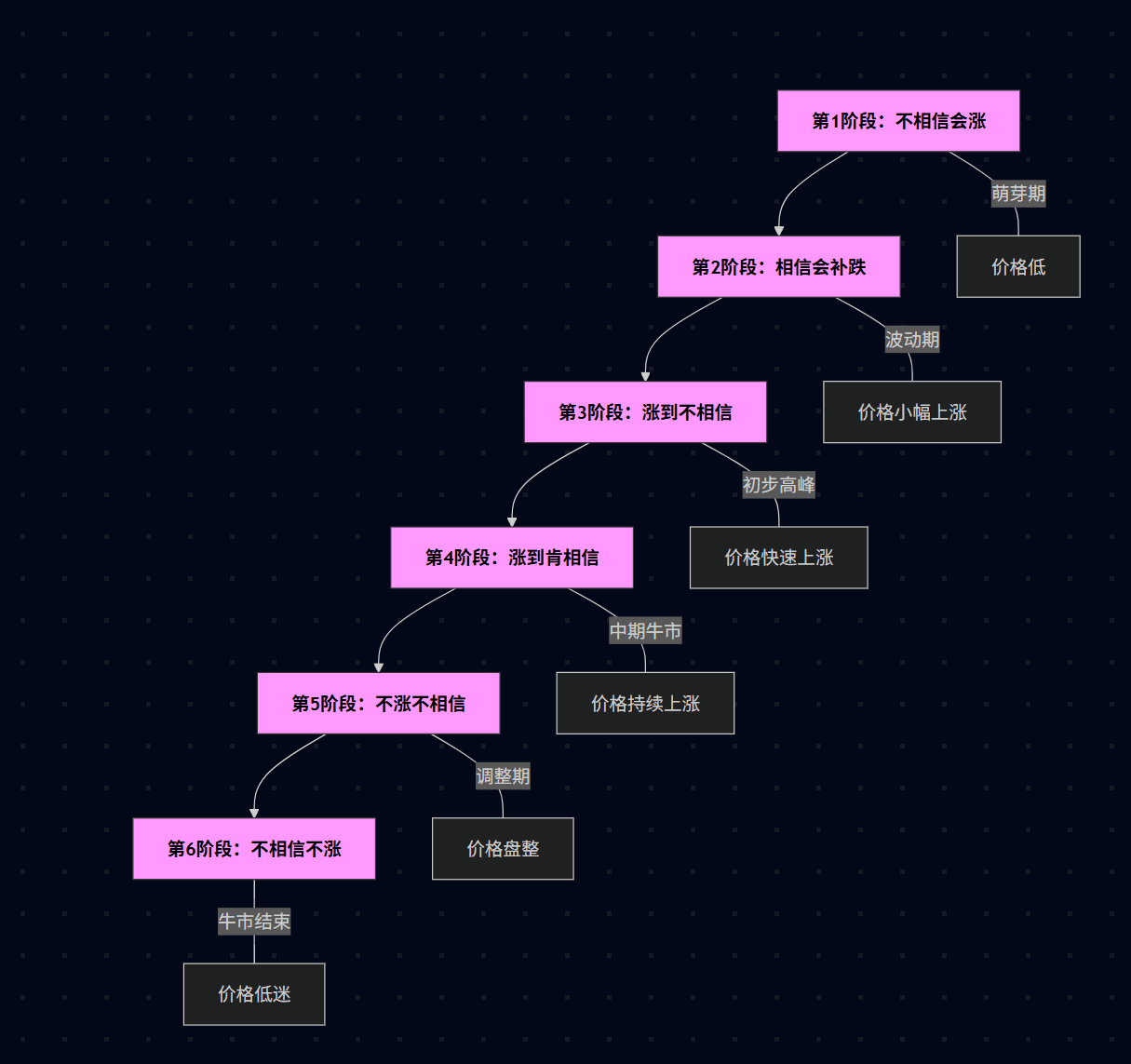The six stages of the bull market are actually a very concise psychological depiction of market sentiment. We can break it down and analyze each stage in detail, corresponding to the typical psychology and market behavior of investors:
First Stage: Do not believe it will rise.
- Psychology: Most people are skeptical about the market rise, believing it is just a short-term rebound or illusion.
- Behavior: Funds are cautious, primarily observing, with low transaction volume.
- Characteristics: This is the embryonic stage of the bull market, smart money may start to quietly position, but the public still does not pay attention.
Second Stage: Believe it will decline.
- Psychology: The market shows slight increases, but investors still believe prices will fall back.
- Behavior: Some early investors may buy at low prices, mainstream funds still observe.
- Characteristics: The market begins to show divergence, and market fluctuations increase.
Third Stage: Rise to disbelief.
- Psychology: Prices rise rapidly, exceeding most people's expectations, everyone begins to doubt the authenticity of the market.
- Behavior: Observers begin to hesitate whether to enter the market, seasoned investors may start to take profits.
- Characteristics: The initial peak of the bull market, market sentiment is both excited and cautious.
Fourth Stage: Rise to belief.
- Psychology: The upward trend is obvious, more people begin to believe that the bull market is real.
- Behavior: Large amounts of funds pour in, the market transaction is active, and even leveraged trading begins to intensify.
- Characteristics: This is a typical mid-stage of the bull market, the increase continues, but risks are also accumulating.
Fifth Stage: Neither rising nor believing.
- Psychology: Prices stop rising or even consolidate, investors begin to doubt the sustainability of the bull market.
- Behavior: Some profit-takers exit, observers hesitate to enter, transaction volume declines.
- Characteristics: Adjustment period in the late stages of the bull market, market sentiment shows differentiation.
Sixth Stage: Do not believe it will rise.
- Psychology: Even after the bull market has ended, most people still do not believe that the market ever existed or has ended.
- Behavior: Funds exit, the market is sluggish, waiting for the next opportunity.
- Characteristics: Typical end stage of the bull market, sentiment is pessimistic, but smart money may have quietly positioned for the next bull market.
